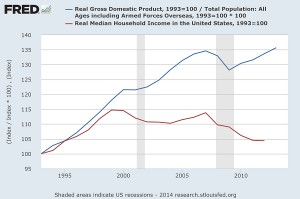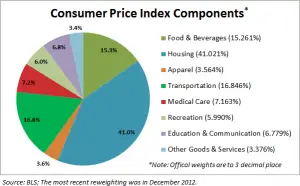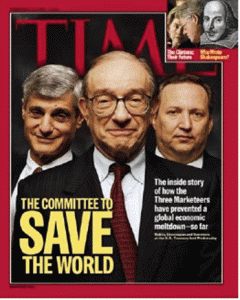The Fed will meet on the 16th and 17th of September to decide whether it’s time to normalize its accommodative monetary policy. But despite vice-chairman Stanley Fischer’s hints at an inflation increase in September, analysts still think that several factors complicate the FED’s decision. Recent turbulence in equities markets across the globe as well as uncertainties about China’s market are only some of the factors putting a damper on the economy. During an Economic Policy Symposium held in Wyoming this August, central bankers discussed how inflation would finally rise despite these issues. After all, the factors that had been holding it down (including fading oil prices, downward … [Read more...]
Effect of Inflation on Bonds Part 2
Effect of Inflation on Bonds While inflation has hardly taken center stage among our economic woes of late, there are some credible voices in economics who are already warning of its dangers down the road. Since the FED has already locked itself into rock-bottom interest rates for the foreseeable future, if the economy does not surprise us with a great rebound in the next few years the Fed will have to resort to its one remaining tool, i.e. an expansionary monetary policy, adopting more aggressive quantitative easing, debt monetizing, and other stimulating (but also inflationary) measures. In short, the FED will have to print more money. At that time, the threat of inflation will be real … [Read more...]
Lawsuit Settlement Inflation
Our society is becoming increasingly litigious with people suing for almost anything. And lawsuit amounts have skyrocketed over the last 50 years. One typical example is in the asbestos litigation category. Although, asbestos use was halted in the 1970s, due to the long period before symptoms of asbestos damage shows up, asbestos related lawsuits are still prevalent. In the United States, approximately 600,000 people have filed suits claiming damages caused by asbestos, and asbestos litigation has become the largest mass tort in history. Despite the decline in the number of people diagnosed with asbestos related diseases (such as mesothelioma cancer) since the 1990s, asbestos litigation … [Read more...]
Active Trading Methodologies
There is a big difference between "Trading" and "Investing". Investors research companies and then based on the fundamentals of the company they buy stocks for the longer term and expect the growth prospects of the company and the industry and the overall economy to take care of the growth of their portfolio. "Active trading" on the other hand is much more like a full time job. It requires watching your investments much closer and buying and selling more often. Thus the commissions you pay are much higher and so finding a broker with low fees is also critical. Position Trading (Long Term) According to Investopedia "Many position traders will take a look at weekly or monthly charts to get … [Read more...]
Living Longer: Health Care, Life Insurance and Retirement Costs for U.S. Citizens
At first glance, one would tend to assume that living longer is a blessing. One gets to spend more time enjoying the company of loved ones, see grandchildren grow up, etc.. However, it’s also worth wondering how current standards of longevity for U.S. citizens tie in with the hefty costs of medical care, the issue of purchasing life insurance, and the cost of retiring. Let's take a look at how much we’re actually spending on health care compared to other countries, how longer lives impact our life insurance premiums, and whether or not we should all just find a different country to retire to. Health Care Costs in the U.S. Obamacare was definitely not the first time the issue of health care … [Read more...]
Consumer Price Index Definition
What is the Consumer Price Index? The Consumer Price Index is simply a basket of goods that is used by the Bureau of Labor Statistics to gauge how much price inflation the economy is experiencing. It is "weighted" based on how much of each good the average family uses. Therefore if 41% of your expenses are related to the housing category and 3.6% of your expenses are related to the apparel category and Apparel goes down by 1% and housing goes up by 1% your overall expenses will still be going up. In other words, if you spend $820 on rent a month and $72 on clothes a 1% increase in your rent would add $8.20 to your monthly rent expenses while a -1% would only save you $0.72 on … [Read more...]
What’s So Bad about Shutting the Government Down?
It all seems a bit silly. On Monday the National Park Service declared that the open-air Veterans Memorial would be closed during the shutdown. After all they have to prove there is some "pain" involved in shutting down the government. But a bunch of 80-90 year old veterans would have none of it and they tore down the blockades. So the park service made a 180-degree turn and declared their visits now constitute protected “First Amendment activity” . Basically they had no choice, what were they going to do? Shoot the old war heroes? Put them all in jail? It's like a bit of a joke. No their backs are against the wall, somehow they must impress on us common rabble how important the … [Read more...]
Taper Caper: The Consequences of Institutionalizing Q.E.
By Ben Hunt, Ph.D. Previously, we discussed the Bureaucratic Capture of the FED and the institutionalizing of QE. QE is adrenaline delivered via IV drip ... a therapeutic, constant effort to maintain a certain quality of economic life. This may or may not be a positive development for Wall Street, depending on where you sit. I would argue that it’s a negative development for most individual and institutional investors. But it is music to the ears of every institutional political interest in Washington, regardless of party, and that’s what ultimately grants QE bureaucratic immortality. It is impossible to overestimate the political inertia that exists within and around these massive … [Read more...]
Taper Caper: Has the FED Been “Politicized” or “Captured”?
By Ben Hunt, Ph.D. Two things happened this week with the FOMC announcement and subsequent press conferences by Bernanke, Bullard, etc. – one procedural and one structural. The procedural event was the intentional injection of ambiguity into Fed communications. As I’ll describe below, this is an even greater policy mistake than the initial June FOMC meeting when “tapering” first entered our collective vocabulary. The structural event ... which is far more important, far more long-lasting, and just plain sad ... is the culmination of the bureaucratic capture of the Federal Reserve, not by the banking industry which it regulates, but by academic economists and acolytes of government … [Read more...]
How States Stack Up
If you have ever considered moving to improve your income or lifestyle the following info-graphic might help clarify your choices. It covers median household income by state ( the yellow states have the highest median income and the orange states have the lowest). It also covers Housing costs, number of millionaires, poverty rate, well being index, employment rate, tax burden, minimum wage and GDP. By clicking on an individual state you can see all its results at once in the right hand column. See also: Cost of Living, State Employment and Unemployment Rates and Minimum Wages vs Unemployment. … [Read more...]









